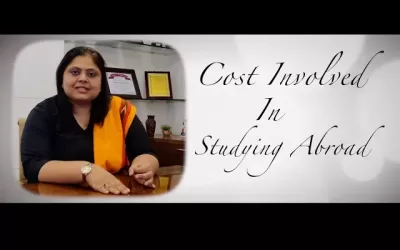I. Introduction
 Studying overseas is an exciting opportunity that offers numerous opportunities. Finding part-time work is essential for overseas students to improve their entire educational experience and to ease financial constraints.
Studying overseas is an exciting opportunity that offers numerous opportunities. Finding part-time work is essential for overseas students to improve their entire educational experience and to ease financial constraints.
II. Understanding Visa Regulations
Types of Visas and Work Restrictions
It’s important to understand every aspect of your student visa before beginning your job search. Certain visas may have different rules about work, such as hours worked restrictions. To prevent legal problems, familiarize yourself with these constraints.
Tips:
Consult with the international student office at your university to get a clear understanding of your visa’s work limitations.
Regularly check for updates on visa regulations to stay informed about any changes that might affect your employment eligibility.
III. Researching Local Job Markets
Evaluating local employment marketplaces may uncover sectors where hiring student employment is highly in demand. Retail, coaching, and hospitality are common industries. It is easier to match market demands with your talents if you are aware of industry trends.
Tips:
Attend local career fairs to connect with employers and gain insights into the job market.
Utilize online platforms and forums specific to your location to stay updated on job opportunities and industry news.
IV. Building a Strong Resume for International Markets
Highlighting Transferable Skills
Crafting an international student resume requires emphasizing transferable skills gained from your academic and extracurricular activities. This adaptation makes your resume appealing to local employers.
Quantify your accomplishments whenever possible to provide tangible evidence of your skills.
V. Leveraging University Resources
Workshops and Training Programs
University career services offer invaluable resources. Attend workshops and training programs to refine your job search skills, including resume writing, interview techniques, and networking strategies.
Tips:
Take advantage of mock interview sessions offered by career services to practice and receive constructive feedback.
Join alumni networks facilitated by the university to connect with former students who can provide guidance and advice.
VI. Online Job Platforms and Networking
Creating a Powerful LinkedIn Profile
Establishing a robust online presence is crucial. Develop a compelling LinkedIn profile that showcases your academic achievements, skills, and aspirations. Join relevant professional groups and connect with industry professionals.
Tips:
Regularly update your LinkedIn profile with any new skills, experiences, or projects.
Personalize connection requests by mentioning shared interests or expressing genuine interest in the other person’s work.
VII. Balancing Work and Studies
Setting Realistic Work Hours
Maintaining a balance between work and studies is paramount. Establish realistic work hours that accommodate your academic responsibilities. Communicate openly with employers about your schedule to avoid conflicts.
Tips:
Create a weekly schedule that includes dedicated time for classes, studying, work, and personal activities.
Prioritize tasks and set goals to ensure you meet both academic and work commitments without feeling overwhelmed.
VIII. Understanding Cultural Differences in the Workplace
Workplace Etiquette Tips
It’s essential to understand and use proper etiquette to blend in with the working culture in your area. To encourage good working relationships with colleagues, be mindful of cultural norms concerning communication, timeliness, and other details.
Tips:
Observe and learn from your colleagues to understand the unwritten rules of the workplace.
Seek feedback on your performance to ensure you’re aligning with cultural expectations.
IX. Overcoming Challenges and Seeking Support
Seeking Guidance from Academic Advisors
It’s normal to face challenges while navigating a foreign job market. Seek guidance from academic advisors who can provide support, and advice, and connect you with resources to overcome hurdles.
Tips:
Schedule regular check-ins with your academic advisor to discuss your experiences and challenges.
Attend support groups or workshops organized by the university to connect with other international students facing similar challenges.
X. Legal Compliance and Taxation
Adhering to Local Employment Laws
Understanding and adhering to local employment laws is crucial. Be aware of your taxation responsibilities as an international student and consult with legal experts if needed to ensure compliance.
Tips:
Keep detailed records of your work hours, pay stubs, and any relevant employment documents for tax purposes.
Consult with a tax professional who specializes in international student taxation to navigate complex regulations.
XI. Conclusion
Seeking for part-time work while studying overseas is a challenging process. Through understanding visa policies, research into local employment markets, and the use of academic resources, you may create the conditions for an efficient and satisfying experience as an international student.
Feel free to get in touch with us for more detailed insights for students studying abroad.
Frequently Asked Questions about Finding Part-Time Jobs While Studying Abroad:
1. What are some important considerations regarding visa regulations when seeking part-time work abroad?
Answer: Understanding the limitations and regulations of your student visa is crucial before embarking on a job search. Different types of visas may have varying rules regarding work, including restrictions on the number of hours you can work. It’s essential to consult with your university’s international student office to gain clarity on your visa’s work limitations. Additionally, staying updated on any changes in visa regulations is important to ensure compliance and eligibility for employment opportunities.
2. How can international students effectively research local job markets while studying abroad?
Answer: Researching local job markets allows international students to identify sectors with high demand for student employment. Attending local career fairs is a valuable way to connect with potential employers and gain insights into job market trends. Furthermore, utilizing online platforms and forums specific to your location can provide up-to-date information on job opportunities and industry news, helping you align your skills with market demands effectively.
3. What strategies can international students use to build a strong resume for international markets?
Answer: Crafting a compelling resume for international markets involves highlighting transferable skills acquired from academic and extracurricular activities. It’s essential to quantify accomplishments wherever possible to provide tangible evidence of skills and achievements. By tailoring your resume to emphasize relevant experiences and skills valued by local employers, you can increase your chances of securing part-time employment opportunities while studying abroad.
4. How can international students leverage university resources to enhance their job search abroad?
Answer: University career services offer valuable resources such as workshops, training programs, and mock interview sessions to help international students refine their job search skills. By actively participating in these programs, students can improve their resume writing, interview techniques, and networking strategies. Additionally, joining alumni networks facilitated by the university provides opportunities to connect with former students who can offer guidance and advice based on their own experiences.
5. What are some effective ways for international students to balance work and studies while studying abroad?
Answer: Balancing work and studies requires careful planning and prioritization. International students can establish realistic work hours that accommodate their academic responsibilities and personal activities. Creating a weekly schedule that allocates dedicated time for classes, studying, work, and personal commitments can help maintain balance. Setting goals and prioritizing tasks ensures that students meet both academic and work commitments without feeling overwhelmed.
6. How can international students navigate cultural differences in the workplace while studying abroad?
Answer: Understanding and respecting cultural norms in the workplace is essential for international students to integrate effectively into their new work environments. Observing and learning from colleagues can help students understand unwritten rules and expectations. Seeking feedback on performance ensures alignment with cultural expectations and fosters positive working relationships. Being mindful of communication styles, punctuality, and other cultural nuances contributes to successful adaptation in the workplace.
7. What steps can international students take to overcome challenges and seek support while studying abroad?
Answer: Facing challenges is a normal part of navigating a foreign job market. International students can seek guidance from academic advisors, who can provide support, advice, and connect students with resources to overcome hurdles. Scheduling regular check-ins with academic advisors allows students to discuss experiences and challenges. Additionally, attending support groups or workshops organized by the university provides opportunities to connect with peers facing similar challenges, fostering a sense of community and mutual support.
8. What are some important considerations regarding legal compliance and taxation for international students working abroad?
Answer: Adhering to local employment laws and understanding taxation responsibilities are crucial for international students working abroad. Keeping detailed records of work hours, pay stubs, and relevant employment documents is essential for tax purposes. Consulting with legal experts and tax professionals specializing in international student taxation can help navigate complex regulations and ensure compliance.
9. How can international students create an efficient and satisfying experience while seeking part-time work abroad?
Answer: By understanding visa policies, researching local employment markets, leveraging university resources, and adhering to legal compliance and taxation requirements, international students can create conditions for an efficient and satisfying experience while studying abroad. Utilizing available resources, seeking support from academic advisors, and actively engaging in the job search process contribute to a successful transition into part-time work abroad.






